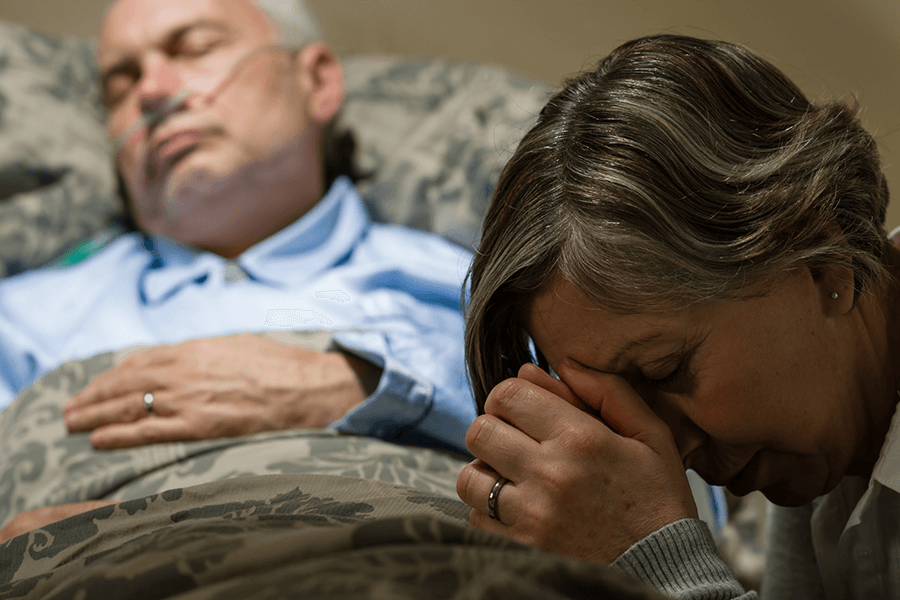Being by the bedside of someone you love who is dying is a unique privilege, but it isn’t easy.
To help a little we have drawn on the wisdom and experience of those who have done it before. We have taken advice from leading palliative care consultants, nurses, chaplains, friends and relatives.
- Be attentive to what your loved one wants – you are there to support them.
- If something concerns you about your loved one, seek out help or advice.
- Sitting at the bedside can be exhausting so try to eat, drink and take regular breaks.
- Aim to create some personal space around the bed, particularly if your loved one is in hospital.
- Don’t feel you have to sit in silence – gentle background conversation or music can be comforting.
- Organise a regular email or set up a WhatsApp group to update family and friends.
- Consider bringing small children for a brief visit and inviting older ones.
- Let your loved one sleep – they may be sleeping a lot in the last days.
- The dying person may speak about dead relatives coming to meet them – listen and don’t be afraid.
- Remember those important last words that you, and they, might like to say: ‘thank you, I’m sorry, I love you’.
- Holding your loved one’s hand is often more powerful than words.
- Don’t be surprised if your loved one dies when you are out of the room – it happens a lot.
- Be prepared for a change in breathing patterns – it’s normal for your loved one to stop breathing and then restart and this may sound like a gasp. It indicates the terminal phase of their illness.
- Be prepared also for their breathing to sound laboured and for a gurgling sound caused by fluid building up at the back of their throat.
- Reassure your loved one that they are free to let go – this ‘permission’ is often taken.
Further reading on death bed etiquette.

